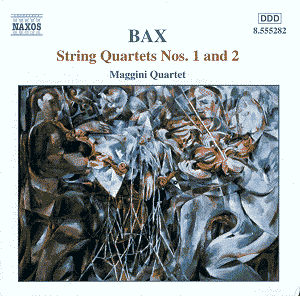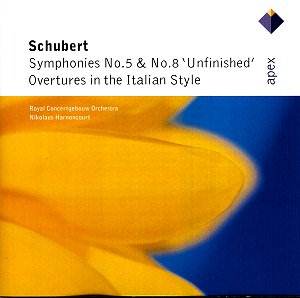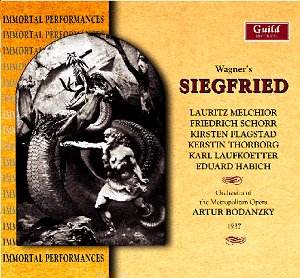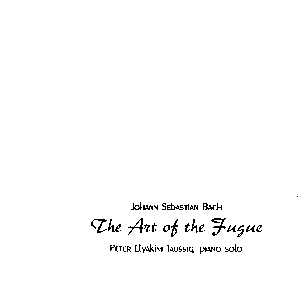 Composer: Sir Arnold Bax
Composer: Sir Arnold Bax
Works: String Quartet No. 1 in G major (1918), String Quartet No. 2 in A minor (1925)
Performers: Maggini String Quartet
Recording: 19-21 December 1999, Potton Hall, Suffolk
Label: NAXOS
Sir Arnold Bax, a towering figure in early 20th-century British music, often finds his orchestral works overshadowing a rich output of chamber music. His two string quartets, composed a mere seven years apart, reflect a distinct evolution in his compositional voice, capturing the turbulent spirit of their times. The String Quartet No. 1 in G major, written shortly after the end of World War I, encapsulates a sense of renewal and introspection, while the more complex String Quartet No. 2 in A minor, emerging in the post-war landscape of 1925, reveals an ambitious depth and emotional resonance. The Maggini String Quartet’s performance of these works on Naxos not only revives Bax’s chamber music but also showcases the ensemble’s adeptness in navigating the intricacies of his style.
The Maggini String Quartet exhibits a commendable understanding of Bax’s musical language, bringing a vibrant energy to the G major Quartet. The opening movement, marked Allegro moderato, is infused with an idyllic lyricism that the ensemble captures beautifully. The balance between the voices is particularly noteworthy; the cello’s warm undertones and the violins’ soaring lines intertwine seamlessly, creating a rich tapestry of sound. The second movement, Andante sostenuto, offers a reflective contrast, and here the Maggini Quartet excels in sustaining the expressive intensity, allowing the music’s quiet introspection to unfold naturally. In this movement, the musicians’ nuanced dynamic control highlights Bax’s intricate harmonic progressions, drawing the listener into a world of poignant melancholy.
In juxtaposition, the Second Quartet reveals a more ambitious architecture, particularly evident in the slow movement, Molto espressivo. While some may argue that the ten-minute span could feel overly indulgent, the Maggini Quartet navigates its emotional terrain with a delicate touch that justifies its length. The funeral episode that permeates the finale is rendered with a haunting depth, capturing the weight of grief that Bax seems to encapsulate within this work. The ensemble’s interpretation is marked by a thoughtful pacing, allowing the underlying tension to build before the exuberance of the concluding Allegro energico. This meticulous approach emphasizes the contrasts present in Bax’s writing, revealing moments of introspection juxtaposed against lively, almost frenetic passages.
The recording quality is commendable, with the engineering at Potton Hall allowing for an intimate yet expansive sound. The resonances of the hall enhance the tonal colors of the quartet, lending a warmth that complements Bax’s lush harmonic language. The clarity of the individual lines is maintained throughout, ensuring that the intricate dialogues between instruments are easily discernible. This is particularly effective in the more contrapuntal passages, where each voice emerges distinctively, a testament to both the performers’ skill and the sound engineering’s effectiveness.
In the broader context of Bax’s oeuvre, the Maggini String Quartet’s recording serves as a critical reminder of the composer’s significance in the chamber music canon. While other recordings exist, such as the performances by the London Haydn Quartet, the Maggini’s interpretation strikes a balance between historical authenticity and contemporary expressiveness. Their commitment to the music’s emotional core allows both quartets to resonate with fresh relevance.
The revival of Bax’s string quartets through this Naxos release not only enriches the understanding of his chamber works but also invites a re-evaluation of his place within the British music landscape. The Maggini String Quartet’s performance is both respectful and invigorating, ensuring that these neglected gems receive the attention they rightfully deserve. The combination of compelling interpretation, technical prowess, and high-quality sound makes this recording an essential addition for anyone interested in the depth of Bax’s musical exploration.



